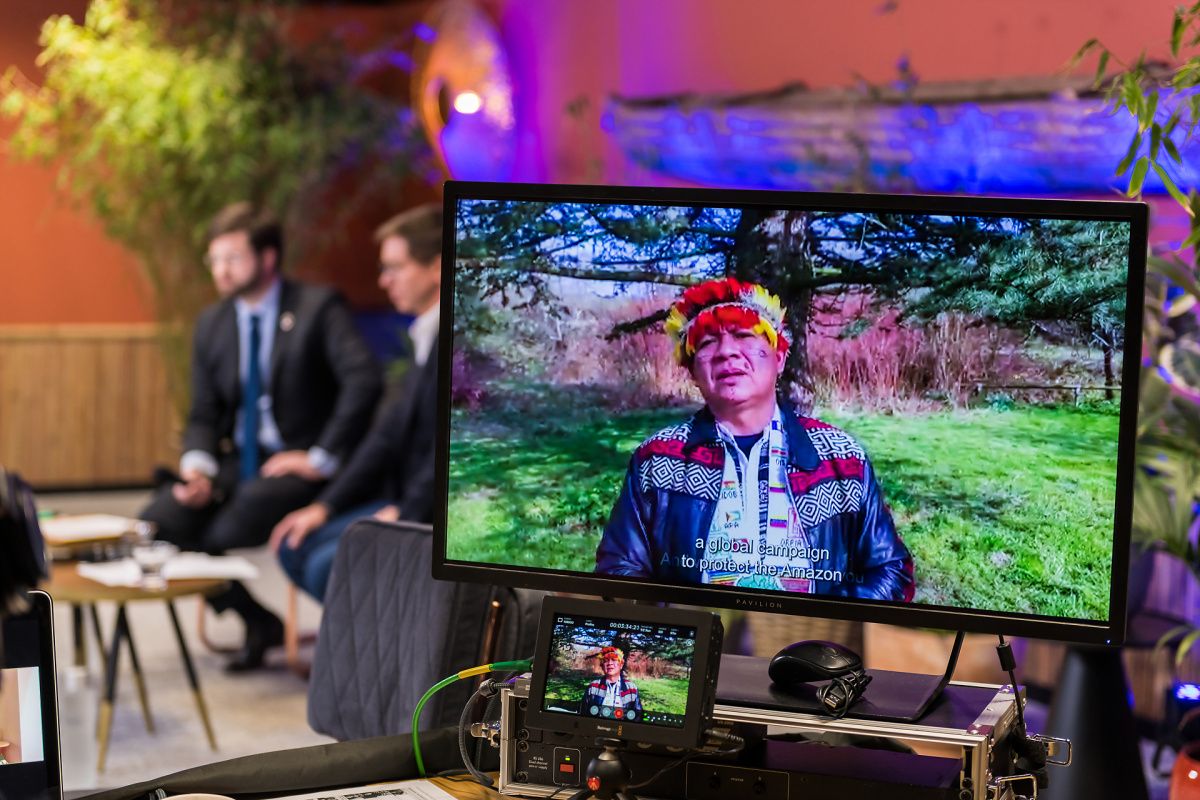Co-founded by Reforest'Action and the Open Diplomacy Institute, the GFS will be an annual landmark until 2030. It aims to bring together forest and environment stakeholders to engage public and private leaders to accelerate action on the protection, restoration, sustainable management and financing of forest ecosystems. Its main objective is to place forests at the top of the international agenda and to report on progress made, in line with key commitments and targets made by many actors in the international community.
The summit gathered 34 representatives of international organizations, members of governments, as well as decision-makers from the business world, community leaders and NGOs. Among those speakers, high level personalities such as H.R.H. Charles, Dr. Jane Goodall, DBE, founder of the Jane Goodall Institute and Virginijus Sinkevičius, European Commissioner for the Environment, Dr. Juliette Biao Koudenoukpo, Director of Secretariat of the UN Forum on Forests and Former Benin’s Minister for the Environment. This GFS edition reached citizens from 140 countries and has been seen +12 million times on social media.

The outcomes of this edition lie in four main ideas : monitoring trends, cutting all roots of deforestation, mainstreaming circular bioeconomy, investing in forest :
Monitoring and data collecting are two of the most important steps for restoration as well as reforestation. Speakers of the GFS recommend a yearly monitoring of effective implementation of forest landscape restoration agreements at global scale and at regional scale.
Stopping all causes of deforestation is essential. As forests naturally sequester 2,4 billion tons of carbon every year, combating deforestation is mandatory in order to address the climate crisis. As deforestation correlates with poverty, it is decisive to fight both. Ensuring a fair income to small farmers would allow a sustainable balance between forest protection and agriculture.
The shift toward a circular bioeconomy has been raised by the speakers of the GFS. Actually, reconsidering our economic model in including nature-based solutions in the economy can provide incentives to avoid deforestation and to boost reforestation. One of the first steps is transforming the food system as it constitutes 25 % to 40 % of greenhouse gas emissions and 90 % of deforestation. However, this needs to be addressed at every level by multi stakeholders coalitions. The private sector constitutes today one of the main assets to mainstream the circular bioeconomy and initiate actions at the international level.
Investing in forest is the last step to reach the target defined by the policies : we need to go from a project approach to a market approach. The speakers discussed how the financements are used : they must conform to the best practices for sustainable management of forests and of adaptation protocols, but also they must reflect the already happening impacts on ecosystems of the climate crisis.
You can watch the recap video :
You can watch the replay in its entirety on YouTube or on the GFS website. The report of the summit is also available. Next year’s Global Forest Summit will be held in London.